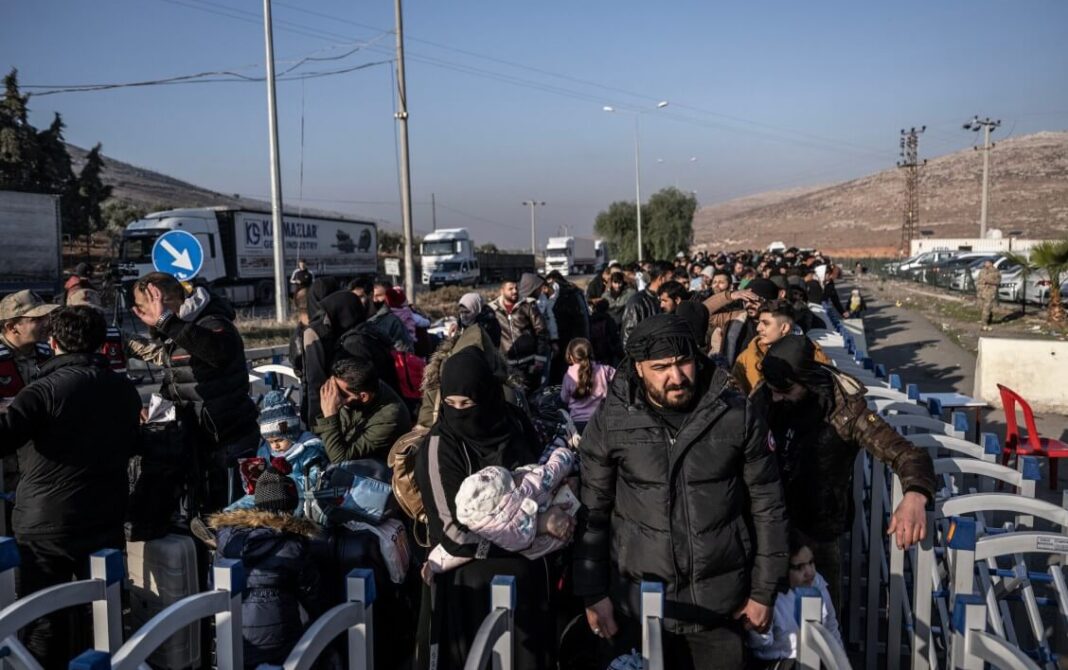Turkey is confronted with the possible economic consequences of Syrian refugees returning home after the fall of President Bashar al-Assad, leading to uncertainties in the labor market, industry and public finance, according to Turkish media reports.
The overthrow of Assad by an alliance of opposition groups has sparked a surge in Syrian refugees leaving Turkey to return home. Turkish Interior Minister Ali Yerlikaya said on Tuesday that the number of voluntary returns rose from an average of 11,000 per month in 2024 to 15,000–20,000 following the announcement of regime change by the rebels.
Turkey, which hosts the largest number of Syrian refugees in the world with more than 3 million under temporary protection, relies on their contributions in sectors such as textiles, construction, services and manufacturing. While official figures put the number of Syrians working legally at 100,000, the total number of workers — including informal labor — is believed to be more than 500,000.
The possible return of Syrian refugees to their homeland is expected to change Turkey’s economic landscape as businesses and policymakers adjust to the consequences of losing a significant part of the country’s labor force.
Employers, particularly in labor-intensive sectors, have expressed concern about the potential gaps left by the migrating workforce.
The exodus of Syrian workers is expected to drive up labor costs, especially in sectors where they have played a crucial role. Economist Mahfi Eğilmez warned in a post on his blog on Sunday that such a shift could lead to inflation, with employers absorbing higher spending by charging higher prices for their products and services.
Eğilmez said businesses relying on low-cost labor may face profit declines or struggle to maintain competitive pricing. Eğilmez also noted that Syrians’ contributions to Turkey’s GDP —through both labor and entrepreneurial activity — would diminish, though he predicts wealthier Syrians with businesses in Turkey may retain operations while expanding ventures in Syria.
Turks are already grappling with the high cost of living with annual inflation above 47 percent in November. The government has been trying to tame inflation since the May 2023 elections with interest rate hikes and other austerity measures, but progress is slow.
The exodus of Syrians could also have an impact on the Turkish real estate market. Refugees who have acquired property as part of integration programs are now selling their assets, which could lead to a drop in prices in some areas. However, the economic void left by the Syrian exodus could be offset by the opportunities arising from the reconstruction of Syria.
Turkish companies, particularly in the cement and steel sectors, are positioning themselves to benefit from the billions of dollars that are expected to flow into the reconstruction of Syrian cities. Trade between Turkey and Syria, which amounted to $2.3 billion annually before the war, is expected to recover if stability returns to the region.
There is also the issue of growing anti-refugee sentiment in Turkey, where rising inflation has exacerbated popular frustration. Opposition parties have used the issue as a political rallying point. Some municipalities are offering transportation assistance to encourage Syrians to return home.
Experts point out that there are still considerable hurdles to overcome before a large-scale return is possible. The lack of infrastructure, ongoing security risks and uncertainty about the new form of government in Syria all pose challenges.
“The reconstruction process in Syria will take years and require massive investment,” Metin Çorabatır, president of the Research Center on Asylum and Migration, told BBC’s Turkish edition. “For now, both Turkey and Syria face a long and uncertain road ahead.”
